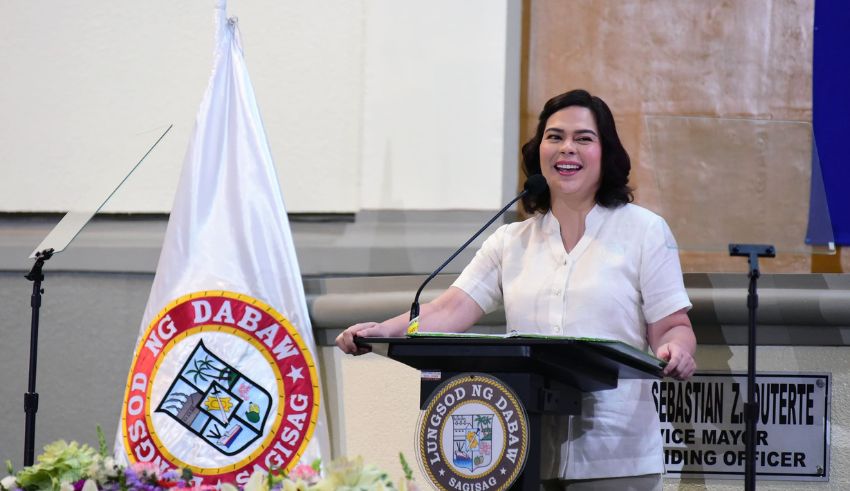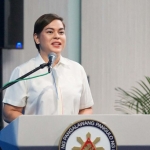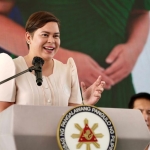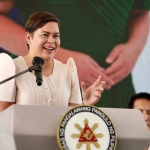
Joel Chua, Manila 3rd District Representative and Chairperson of the House Committee on Good Government and Public Accountability, said on Monday that there might be possible grounds for impeachment against Vice President Sara Duterte in a major turnabout for Philippine politics. The accusations center on the dubious expenditure of her office, particularly PHP 16 million set for “safe houses” and another PHP 15 million supposedly for a youth gathering. Unless the Office of the Vice President (OVP) can offer explanations for these allocations, Chua claimed, major liabilities could be involved, therefore compromising public confidence and maybe violating anti-graft laws.
Dealing with reporters in a virtual interview, Chua clarified that early evidence review by the House committee expressed questions over Duterte’s responsibility. Emphasizing the need for openness in government expenditure, he mentioned the “betrayal of public trust” and possible impeachment grounds—that is, suspected corruption and bribery. “These two incidents show serious issues unless, of course, they can be fully justified; but as we see it, there may indeed be a liability,” Chua said.
Analysis of the Variations in Spending
First brought to attention on October 17, amid an ongoing House investigation headed by the Commission on Audit (COA), was the controversial spending. According to the COA, Duterte’s office set aside PHP 16 million of its PHP 125 million confidential budget for the purchase of safe houses. Represented by attorney Gloria Camora, COA’s Intelligence and Confidential Funds Audit Office claims that although the spending covered only an 11-day period from December 21 to 31, they were somewhat significant. Given the limited coverage, the OVP’s submission of 34 acknowledgment receipts to justify the payments drew questions among legislators.
The inquiry veered when former police officer Antipolo Representative Romeo Acop observed an outlier receipt documenting a PHP 500,000 payment for a lone safe house. Examining the invoices, Camora calculated daily expenses for each safe house at about PHP 45,000. Chua reiterated Acop’s astonishment at the size of the money, labeling it “extraordinarily high” and implying that the OVP still needs to offer enough justification for the spending. “The costs associated with these safe homes are exceptionally large, and this deserves a comprehensive explanation from the OVP to maintain public accountability,” Chua said, advocating more investigation into Duterte’s expenditure practices.
Apart from the safe house money, the inquiry has also highlighted budgetary allocations at the Department of Education (DepEd), where Duterte formerly held Secretary’s post. Under the disguise of a Youth Leadership Summit (YLS), the DepEd allegedly paid informants using PHP 15 million of its confidential budget. Military personnel who validated these monies later said, however, that they were unaware their certificates would be used to verify private money expenditure for informants, therefore casting more questions about the allocation and justification of these monies.
Legal Conventions and Possible Ground for Impeachment
Under Philippine law, impeachment grounds include betrayal of public trust, corruption and bribery, culpable violation of the Constitution, treason, dishonesty, and great crimes. Should Chua’s committee prove Duterte guilty for any one of these offenses, the results might open the path for a formal impeachment complaint directed against her. A broad and divisive notion in Philippine constitutional law, betrayal of public trust is sometimes understood as a major transgression of public faith in government officials’ behavior and judgments. In his reasoning, Chua underlined this idea, implying that, should found illegal, the unaccounted expenditure might violate this basic confidence.
Relatedly, GMA News Online contacted Vice President Duterte via Michael Poa, her spokesman, in order to get an explanation on the matter. As of the most recent figures, though, Duterte has not released an official statement answering the accusations. Chua acknowledged that should Duterte’s office fail to offer a suitable justification, the House Committee on Good Government and Public Accountability could escalate the matter and maybe launch an impeachment complaint to formally handle the claimed misbehavior.
Keep Reading
Public Reaction and More General Political Connotations
Many Filipinos are closely watching the case as it develops, therefore generating great public interest. Spending patterns of Vice President Duterte have generated public controversy since many social media users doubt the validity of the expenses and advocate more government control to reduce possible corruption. Viewers believe that the scrutiny captures an increasing worry in the Philippines about the openness of top government actions, especially with relation to the usage of private cash. The result of this inquiry might indicate a new age of responsibility for top officials and set a standard for how such money is used going forward.
Advancing an impeachment complaint would be a rare and significant measure for the House of Representatives since impeachment is an unusual procedure in Philippine politics and usually reserved for major transgressions. Analysts claim that any attempt to remove the vice president would also challenge Congress’s political balance and unity, therefore encouraging allies of Duterte to gather in her defense and maybe starting political disputes. Chua, however, expressed hope that the results of his group will be grounded entirely on research, not political alliances.
Future Directions of the Research
According to Chua, the House committee intends to start reviewing Duterte’s budget usage once more next week. Given COA’s preliminary results, legislators will probably want further information and explanation on the distribution of this money. Chua said that the committee’s ultimate recommendations would be decided upon in great part by the later sessions. Should other anomalies come to light, the committee may decide on definite impeachment action.
The approaching hearings will probably examine the reason and need of these expenses, looking at whether they were really utilized to promote national security initiatives as the OVP says or if they served other goals. Particularly with regard to private spending that evades normal checks and balances, lawmakers, legal experts, and the public all alike will be keenly observing to see if the procedures expose more underlying systemic problems in government fund management.
All told, the probe of Vice President Sara Duterte’s fund use has raised important questions about responsibility and openness inside the Philippine government. The results of this case could define public expectations for moral government and affect the way next administrations handle public money.



























